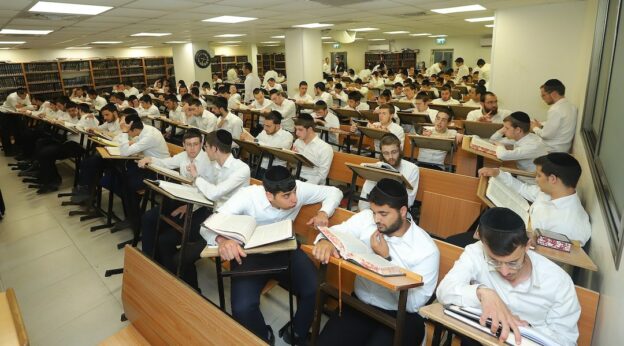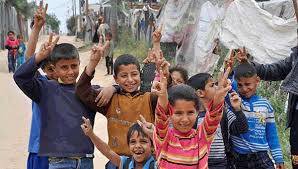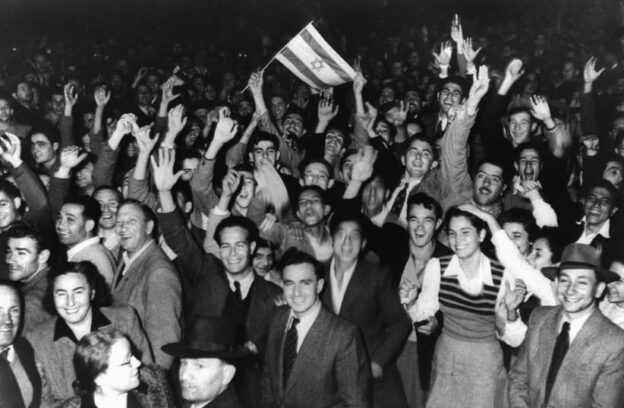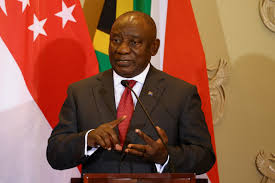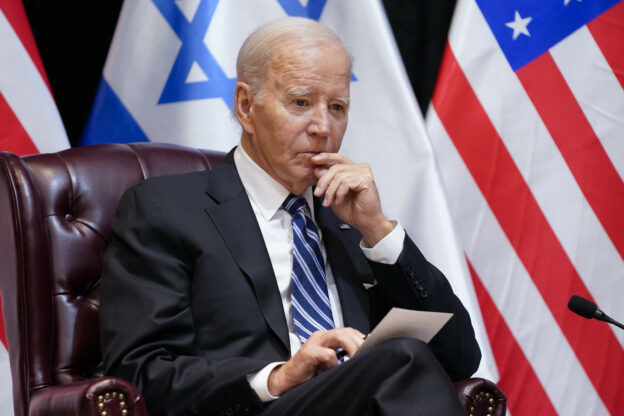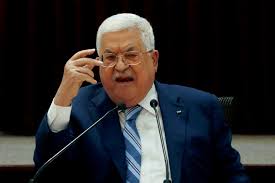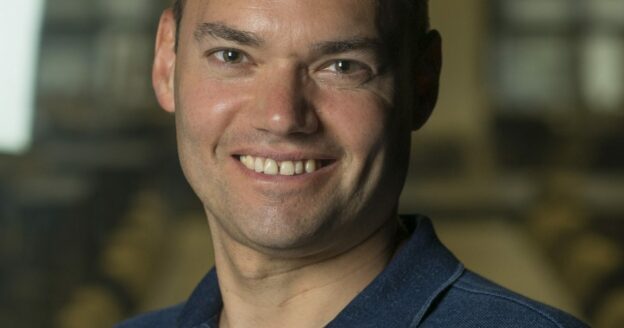It’s an image to warm the deepest cockles of any peace-loving heart: A Gaza in peace with Israel, conducting commerce with her, with both countries exchanging tourists and economically prospering as a result. Indeed, by all logic and reason, Gazans should recognize that Hamas’ rule over the territory has brought them nothing but grief, death and destruction.
What chills those cockles, though, is that we’ve seen this play before. In 2005, 21 Israeli settlements in Gaza were unilaterally dismantled and the strip was rendered Judenrein. With the Gazan populace’s approval, Hamas quickly took charge and, well, the rest is tragic history.
Today, six months since the merchants of murder demonstrated the depth of their hatred and barbarism, Gaza’s infrastructure has been destroyed. Hospitals (aka military arsenals), schools (aka missile bases) and countless homes (some of which were just homes). Roads, sewage systems and the electrical grid – are in ruins.
Whether the unprecedented death, destruction and displacement Hamas has brought upon Gazan civilians has convinced them that supporting evil doesn’t pay can’t be known at this time.
But, embracing hope, the U.S. has called for a revitalized Palestinian Authority to administer postwar Gaza ahead of eventual statehood.
The P.A.? Please.
In Mahmoud Abbas’ kingdom of corruption in Yehudah and Shomron, government jobs are doled out to supporters; international aid enriches officials; basic services are spotty; elections haven’t been held for nearly twenty years.
Mr. Abbas, of course, was elated by the U.S. endorsement of even a “reconstituted” Palestinian Authority. And, in March, he announced the formation of a new cabinet, to demonstrate his readiness to step up to the reconstruction plate.
Tapped for prime minister is Mohammad Mustafa, a longtime Abbas adviser. He pledged to form a technocratic government and create an independent trust fund to help rebuild Gaza.
The U.S. National Security Council welcomed the development, contending that “a reformed Palestinian Authority is essential to delivering results for the Palestinian people and establishing the conditions for stability in both the West Bank and Gaza.”
The key word there is “reformed.”
The signs are hardly encouraging. According to Palestinian Media Watch, the new Palestinian Authority’s minister of women’s affairs, Muna Al-Khalili, offered praise in 2018, for Dalal Mughrabi at an event honoring the terrorist, who in 1978 led a group that hijacked a bus and murdered more than three dozen riders, including 12 children. “A quality resistance operation,” Al-Khalili gushed, proclaiming that the attack “proved that Palestinian women are capable of carrying out the most difficult missions.” The most heinous ones, at least.
And, mere weeks after the Shemini Atzeres massacre, Ms. Al-Khalili hailed the “right to resist the occupation” until Palestinians achieve “self-determination, freedom, independence in its sovereign state whose capital is Jerusalem…”
An equally disturbing member of the “revitalized Palestinian Authority” is its minister of religious affairs, Muhammad Mustafa Najem. He has called Jews “apes and pigs” who are full of “conceit, pride, arrogance, rioting, disloyalty, and treachery.” He sermonized that Muslims should “afflict the Jews with the worst torment.”
No, neither the old P.A. nor its “new and improved” version – as a bard once put it, “meet the new boss, same as the old boss” – is a path forward for Gaza. Any respectable government there will have to be something truly novel, an administration whose focus is on the wellbeing of its citizens, not on murdering citizens of a neighbor.
Could that happen?
The latest poll conducted by the Palestinian Center for Policy and Survey Research, on March 20, showed that Gazans’ support for continued Hamas control over the Gaza Strip showed a 14-point rise over the prior three months to more than 50%.
If that reflects Gazans’ true feelings, no sane, responsible government will emerge in the territory. The only grounds for hope are the many reports of Gazans who quietly admit that they hate Hamas but are afraid to speak up.
Their fear is understandable. Hamas has warned Gazans that anyone seeking to undermine its administration of the territory will be treated as a collaborator – which, of course, means execution.
Are there enough Gazans who prefer peace to endless bloodshed and who will vote that preference in some future election?
I’m not taking bets.
(c) 2024 Ami Magazine
